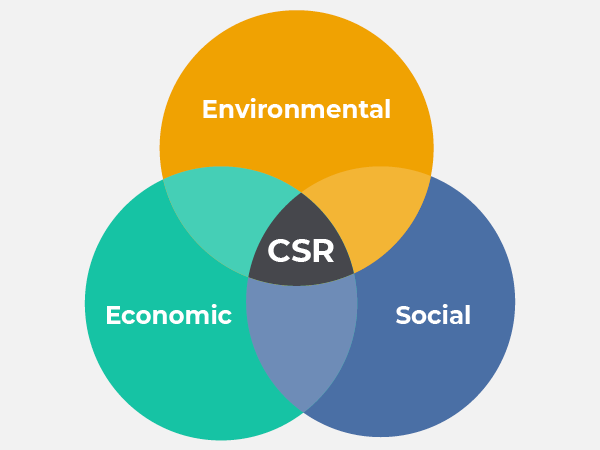As businesses continue to evolve in today’s socially conscious world, the concept of Corporate Social Responsibility (CSR) has become increasingly important. Companies are recognizing the need to go beyond profit-making and take responsibility for their impact on society and the environment. In this blog post, we will explore the impact of CSR and provide practical steps that your business can take to make a difference.
Why is CSR important?
CSR is crucial for numerous reasons. Firstly, it enhances a company’s reputation and brand image. By prioritizing social and environmental initiatives, businesses can build trust and loyalty among customers, resulting in long-term success. Secondly, CSR can attract and retain top talent. Millennials and Gen Z, who currently comprise a significant portion of the workforce, value purpose-driven work and are more likely to be attracted to companies that demonstrate a commitment to social responsibility. Lastly, CSR helps mitigate risks and creates a safer and healthier society. By addressing issues such as climate change or income inequality, businesses can contribute to a sustainable future for all.
Steps to implement CSR in your business:
1. Conduct a CSR assessment: Start by evaluating your current practices and identifying areas for improvement. Consider your company’s impact on the environment, employee well-being, community involvement, and ethical business practices.
2. Set clear CSR goals: Based on the assessment, establish specific and measurable goals aligned with your business values. For instance, reducing carbon emissions by a certain percentage, implementing fair labor practices, or supporting a local charity.
3. Engage employees: CSR initiatives are most successful when employees are involved and committed. Engage them in the decision-making process, encourage volunteering, and create a supportive work environment that fosters social responsibility.
4. Implement sustainable practices: Integrate environmentally friendly practices into your operations, such as reducing waste, conserving energy, and utilizing renewable resources. This not only benefits the planet but also reduces costs in the long run.
5. Support the community: Get involved in local initiatives and philanthropy. Consider sponsoring events, supporting charities, or establishing partnerships with nonprofit organizations. This demonstrates your commitment to the community in which you operate.
6. Ethics and transparency: Conduct your business with integrity and transparency. Adopt ethical practices in all aspects, from supply chain management to customer relationships. Communicate your efforts through clear and honest messaging.
7. Engage stakeholders: Collaborate with suppliers, customers, investors, and other stakeholders to create a network focused on sustainable development. Share best practices, encourage responsible behavior, and consider the impact of your decisions on all involved parties.
8. Measure and report progress: Regularly assess and measure the impact of your CSR initiatives. Report your progress internally and externally to showcase your commitment to transparency and accountability.
Conclusion:
Implementing CSR initiatives in your business is not only the right thing to do but also brings significant benefits. By prioritizing social and environmental responsibility, you can enhance your brand image, attract top talent, and contribute to a sustainable future. Start by conducting a comprehensive assessment, engaging employees, implementing sustainable practices, supporting the community, practicing ethics and transparency, engaging stakeholders, and measuring your progress. Embrace CSR as a long-term strategy that will make a real difference, both within your business and in the world around you.











